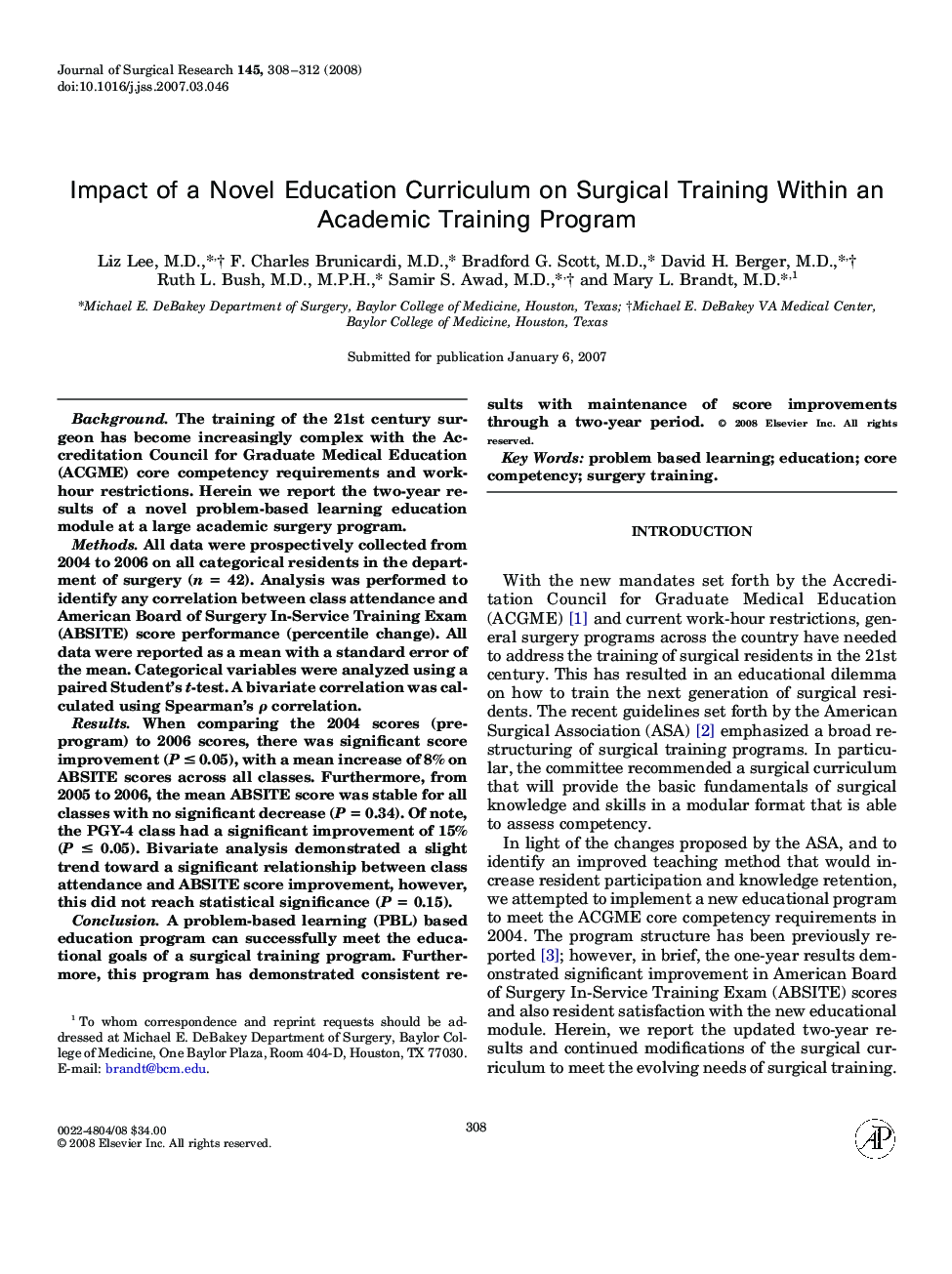| Article ID | Journal | Published Year | Pages | File Type |
|---|---|---|---|---|
| 4304181 | Journal of Surgical Research | 2008 | 5 Pages |
BackgroundThe training of the 21st century surgeon has become increasingly complex with the Accreditation Council for Graduate Medical Education (ACGME) core competency requirements and work-hour restrictions. Herein we report the two-year results of a novel problem-based learning education module at a large academic surgery program.MethodsAll data were prospectively collected from 2004 to 2006 on all categorical residents in the department of surgery (n = 42). Analysis was performed to identify any correlation between class attendance and American Board of Surgery In-Service Training Exam (ABSITE) score performance (percentile change). All data were reported as a mean with a standard error of the mean. Categorical variables were analyzed using a paired Student’s t-test. A bivariate correlation was calculated using Spearman’s ρ correlation.ResultsWhen comparing the 2004 scores (pre-program) to 2006 scores, there was significant score improvement (P ≤ 0.05), with a mean increase of 8% on ABSITE scores across all classes. Furthermore, from 2005 to 2006, the mean ABSITE score was stable for all classes with no significant decrease (P = 0.34). Of note, the PGY-4 class had a significant improvement of 15% (P ≤ 0.05). Bivariate analysis demonstrated a slight trend toward a significant relationship between class attendance and ABSITE score improvement, however, this did not reach statistical significance (P = 0.15).ConclusionA problem-based learning (PBL) based education program can successfully meet the educational goals of a surgical training program. Furthermore, this program has demonstrated consistent results with maintenance of score improvements through a two-year period.
